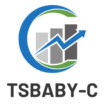As a small business owner, I know how crucial it is to keep track of finances without breaking the bank. Managing cash flow, expenses, and income can be overwhelming, especially when you’re just starting out. That’s why I’ve explored numerous business finance tracker free that can help entrepreneurs take control of their financial health.
I’ve discovered that free finance tracking tools offer impressive features like expense categorization, invoice management, and basic reporting capabilities. These solutions help small businesses monitor their financial performance without investing in expensive software. While paid options might provide more advanced features, free trackers often include everything you need to maintain organized financial records and make informed business decisions.
Key Takeaways
- Business finance tracker free offer essential features like expense tracking, invoice management, and basic reporting without the cost of premium software
- Top free options include Wave Accounting (cloud-based), GnuCash (desktop), and ZipBooks (web-based), each providing comprehensive financial management tools
- Key features of free finance trackers include automated transaction categorization, bank integration, expense tracking, income management, and basic financial reporting
- Setting up a finance system requires organized categories, secure bank connections, and regular monitoring of transactions for optimal financial management
- Security features like 256-bit encryption, multi-factor authentication, and automated backups protect sensitive financial data even in free tools
- Regular financial review, smart categorization, and automated systems integration are essential practices for effective business finance tracking
Business Finance Tracker Free
A business finance tracker is a digital tool that records financial transactions including income streams expenses investments assets liabilities across business operations. I’ve found these tools integrate essential financial management features in a centralized dashboard for monitoring business performance.
Key components of a business finance tracker include:
- Expense Management: Captures daily operational costs vendor payments utility bills
- Income Tracking: Records revenue sources customer payments recurring subscriptions
- Cash Flow Monitoring: Displays real-time cash position incoming outgoing transactions
- Budget Planning: Sets spending limits expense categories financial goals
- Financial Reporting: Generates profit loss statements balance sheets cash flow reports
- Bank Integration: Syncs bank accounts credit cards payment processors
- Invoice Creation: Produces professional invoices tracks payment status
Here’s how different business types utilize finance trackers:
| Business Type | Primary Use Cases | Key Benefits |
|---|---|---|
| Retail | Daily sales tracking inventory costs | Improved inventory management |
| Service-based | Project expenses billable hours | Accurate client billing |
| E-commerce | Payment processing refunds | Streamlined transaction monitoring |
| Freelance | Income expense categorization | Simplified tax preparation |
- Automated Transaction Categorization: Sorts expenses income into preset categories
- Visual Analytics: Displays financial trends through charts graphs
- Real-time Updates: Reflects current financial position as transactions occur
- Custom Tagging: Organizes transactions by projects clients departments
- Data Export: Enables sharing financial data with accountants advisors
Best Free Finance Tracking Tools for Small Business
I’ve identified three powerful free financial tracking solutions that offer comprehensive features for small business accounting needs. These tools provide essential functionality without the premium price tag of paid alternatives.
Wave Accounting
Wave Accounting delivers a cloud-based platform with automatic bank connections to sync transactions from 13,000+ financial institutions. The software includes unlimited income tracking, expense management, customizable invoicing templates, receipt scanning capabilities through the mobile app. I particularly value its double-entry accounting system that automatically generates financial statements including balance sheets, profit & loss reports, and cash flow statements.
| Wave Accounting Features | Details |
|---|---|
| Bank Connections | 13,000+ institutions |
| Transaction Tracking | Unlimited |
| Mobile Receipt Scanning | Yes |
| Financial Reports | 3 core statements |
| User Access | Up to 9 users |
GnuCash
GnuCash operates as an open-source desktop application with professional accounting features designed for small businesses. The software excels at managing accounts payable/receivable, tracking customer payments, organizing payroll records, and creating detailed financial reports. I appreciate its ability to handle multiple currencies, split transactions, and scheduled transactions for recurring bills or income.
| GnuCash Features | Specifications |
|---|---|
| Installation Type | Desktop-based |
| Multi-Currency | 150+ currencies |
| Account Types | 12+ categories |
| Data Export | 5+ formats |
| Backup Options | Local + Cloud |
ZipBooks
ZipBooks combines modern design with essential accounting features in a web-based interface. The free starter plan includes digital invoicing, expense tracking, vendor management, and basic reporting capabilities. I find its time tracking feature particularly useful for service-based businesses, along with its ability to process payments through Square and PayPal integrations.
| ZipBooks Features | Free Plan Limits |
|---|---|
| Monthly Invoices | Unlimited |
| Payment Integrations | 2 providers |
| Client Management | Up to 10 contacts |
| Report Types | 3 basic reports |
| Time Tracking | Basic features |
Essential Features of Free Financial Tracking Software
Free financial tracking software includes fundamental capabilities that streamline business accounting processes while maintaining professional standards. Here’s a detailed look at the core features essential for effective financial management.
Expense Tracking
- Digital receipt capture with OCR technology for automatic data extraction
- Customizable expense categories aligned with tax deduction requirements
- Automated bank feed integration for real-time transaction updates
- Multi-currency support for international business transactions
- Mileage tracking with GPS integration for travel expenses
- Receipt attachment options in JPG PNG PDF formats
Income Management
- Invoice generation with customizable templates
- Payment processing integration with platforms like Stripe PayPal Square
- Recurring billing automation for subscription-based revenue
- Customer contact database with payment history
- Late payment reminders with automated follow-ups
- Revenue categorization by product service or client
| Report Type | Update Frequency | Key Metrics |
|---|---|---|
| Profit & Loss | Monthly | Revenue Expenses Net Income |
| Cash Flow | Weekly | Inflows Outflows Balance |
| Balance Sheet | Quarterly | Assets Liabilities Equity |
| Tax Summary | Annual | Deductions Income Tax Liability |
- One-click report generation for standard financial statements
- Data visualization through charts graphs pie diagrams
- Export capabilities to Excel CSV PDF formats
- Custom date range selection for periodic analysis
- Real-time dashboard with key performance indicators
- Financial trend analysis with comparative periods
Setting Up Your Business Finance System
I’ve streamlined the setup process for a robust business finance tracking system into essential steps that minimize complexity while maximizing efficiency. Here’s how to configure your financial tracking foundation with free tools.
Organizing Financial Categories
Financial categories form the backbone of accurate business tracking through standardized classifications for income streams expenses. I organize essential business categories into:
- Create separate income categories for product sales service revenue affiliate commissions
- Set up expense categories for office supplies inventory marketing costs utilities
- Establish tax-related categories for deductions credits quarterly payments
- Define payroll categories including salaries contractor payments benefits
- Add custom categories specific to industry requirements regulatory compliance
- Connect business bank accounts through secure OAuth authentication protocols
- Set up automatic daily transaction syncing with 256-bit encryption
- Map recurring transactions to predetermined expense income categories
- Enable transaction rules for automatic categorization based on vendors amounts
- Configure custom tags for project-based client-specific transaction tracking
| Transaction Import Features | Time Saved (Hours/Month) |
|---|---|
| Automatic Bank Sync | 8-10 |
| Smart Categorization | 4-6 |
| Recurring Transaction Rules | 3-4 |
| Custom Tagging | 2-3 |
Tips for Effective Financial Management
Regular Financial Review
I maintain daily monitoring of cash flow movements to spot trends early. Setting aside 15 minutes each morning for transaction review establishes a consistent routine. Monthly reconciliation of accounts prevents discrepancies from compounding over time.
Smart Categorization Strategy
I create specific expense categories aligned with tax deductions:
- Office supplies
- Marketing costs
- Travel expenses
- Professional services
- Equipment purchases
Automated Systems Integration
I leverage automation features to streamline processes:
- Bank feed connections for real-time transaction updates
- Recurring bill payment schedules
- Invoice reminder systems
- Receipt capture mobile apps
Digital Document Organization
I implement a structured filing system:
- Scan receipts immediately using mobile apps
- Store invoices in cloud-based folders
- Label files with date-vendor-amount format
- Back up financial documents weekly
Cash Flow Optimization
I employ these proven techniques:
- Track accounts receivable aging
- Set payment terms at net-30 or less
- Offer early payment discounts
- Monitor inventory turnover rates
- Schedule regular supplier payment reviews
Performance Metrics Tracking
I monitor these key financial indicators:
| Metric | Review Frequency | Target Range |
|---|---|---|
| Gross Margin | Monthly | 50-70% |
| Operating Cash Flow | Weekly | 15-25% |
| Accounts Receivable Days | Bi-weekly | 30-45 days |
| Current Ratio | Monthly | 1.5-3.0 |
| Debt-to-Equity | Quarterly | 1.5-2.0 |
- Separate business expenses from personal
- Track mileage with GPS apps
- Document meal expenses with notes
- Keep contractor payment records
- Save charitable contribution receipts
Security Considerations for Free Finance Tools
Data Encryption Standards
Free finance trackers implement 256-bit SSL encryption to protect sensitive financial data during transmission. I’ve observed that top-tier tools like Wave Accounting use bank-grade security protocols similar to those found in premium software. These encryption methods safeguard:
- Account credentials through multi-factor authentication
- Financial transactions with end-to-end encryption
- Document storage using secure cloud servers
- API connections with banking institutions
Access Control Measures
Free financial tools offer robust user permission settings to maintain data integrity. Account administrators control:
- Role-based access levels (Admin, Manager, Viewer)
- IP address restrictions for login attempts
- Session timeout parameters
- Audit logs of user activities
Compliance Requirements
Free finance trackers maintain industry-standard compliance certifications:
- SOC 1 Type II compliance for financial reporting
- GDPR requirements for EU data protection
- PCI DSS standards for payment processing
- CCPA regulations for California users
Data Backup Protocols
Reliable free finance tools implement comprehensive backup systems:
| Backup Feature | Frequency | Retention Period |
|---|---|---|
| Cloud Backup | Daily | 30 days |
| Local Export | On-demand | Unlimited |
| Server Mirroring | Real-time | 7 days |
| Version History | Hourly | 14 days |
Third-Party Integration Security
When connecting external services, free finance trackers establish secure connections through:
- OAuth 2.0 authentication protocols
- API key encryption
- Secure token management
- Regular security audits of integration partners
- Data anonymization for analytics
- Configurable data retention periods
- Secure data deletion protocols
- Transparent privacy policies
- Regular security patch updates
Finance Tracker
Business finance tracker free have revolutionized how small business owners manage their finances. I’ve explored how tools like Wave Accounting GnuCash and ZipBooks offer robust features without the premium price tag. These solutions provide essential functionalities from expense tracking to financial reporting making them valuable alternatives to paid software.
I believe the key to success lies in choosing the right tool and implementing proper security measures. By following the setup guidelines and management strategies I’ve shared you’ll be well-equipped to maintain healthy financial records. Remember that effective financial tracking isn’t just about the tool – it’s about developing consistent habits and leveraging automation to save time and reduce errors.

